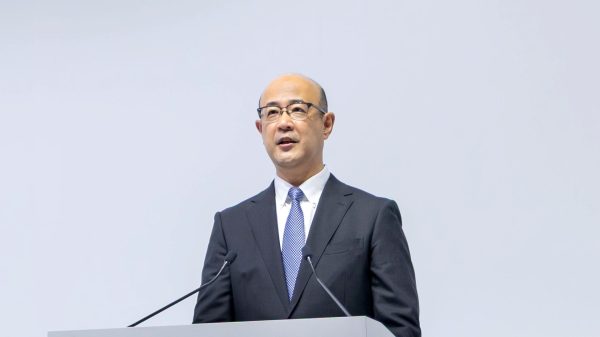 Leicester's relegation from the Premier League was confirmed last May at the end of a season for which they had yet to submit a bid. accounts Photo: Action Images via Reuters/Craig Brough
Leicester's relegation from the Premier League was confirmed last May at the end of a season for which they had yet to submit a bid. accounts Photo: Action Images via Reuters/Craig Brough
Leicester City as of Friday had yet to report financial results for the year ending May 2023, which is no one's idea of speeding up the process in the complex business of regulating the expenses of the poor, the rich , the super-rich and everyone else in English football.
This is why the Premier League's profit and sustainability (PSR) charge was described as an «alleged» breach in the statement announcing it. The Premier League is still working on the forecast provided by the club for the final year of the monitoring period, up to and including the 2022/23 season. The new fast track rules adopted at last summer's AGM were too late to apply to Leicester, so the wait continues.
Meanwhile, friendly Leicester, the great champions of 2016, a club that has never before been keen to blow its own trumpet — apart from the post-match pre-match gallop — have now taken legal action against the Premier League. Two statements in two days: the first darkly warns of «illegal actions of football authorities» and the second is completely legitimately aimed at the Premier League and the Football League (AFL).
«LCFC has repeatedly demonstrated its commitment to P&S rules» Lester said. However, if the response to an indictment is to challenge the application of these rules, then it is difficult to see what that obligation is.
English football, and especially its two top divisions, operates on the basis that the Rules are the consensus that makes competition work and keeps everyone out of court. However, as PSR has gained momentum in recent years, it appears that many are choosing to go to court.
The decision in the Nottingham Forest case saw the club attempting to argue that the PSR was unfair to a promoted club that had not recently enjoyed any parachute payment benefits and had no semblance of a top-flight team. After all, their entire business plan was whether they could sell Brennan Johnson by the end of June; they missed the deadline by two months.
Like Forest, when Everton were charged, they tried to claim a number of dubious additions to the PSR and insisted that they would not face punishment more serious than a transfer embargo. Leicester's approach appears to be that their business plan for the top 10 does not include one failed summer deal and a shock relegation. Another club unwilling to accept that serious violations have serious consequences.
Manchester City, meanwhile, made the biggest indictment of them all and turned it into the football managerial equivalent of the Hundred Years' War. In February, the Premier League told clubs that one of its members had launched legal action over related party transactions rules. Fingers are pointed at the usual suspects, although nothing has been confirmed. In any case, the house creaks.
Like other players in their situation, Leicester adopted the language of the freedom fighter. “We will continue to fight for the right of all clubs to realize their ambitions,” they said this week, noting that those ambitions had been “reasonably and fairly vindicated through sustained sporting performance.” And then they need to be reminded: you agreed to these rules. Then surely the time has come to oppose them on principles.
There was an outside chance that if Leicester's case was concluded this season, the Premier League could reach an agreement with the English Football League that the points deduction would apply this season in the Championship. Delays in the case are hampering that outcome and any possibility that Leicester's promotion could be in jeopardy.
The fragile consensus on which the game is built is not only being destroyed, but huge chunks of it are being taken out. This is usually where the state regulator is mentioned, although one can only assume that the state takes this task with even less pleasure. The Football Governance Bill has not yet even been introduced into Parliament and the first rumors have already emerged that clubs have taken legal action against the regulator.
Regarding the New Deal agreement between the Premier League and the English Football Association league, it predictably fails because many top clubs are unwilling to hand out hundreds of millions without first having strong financial controls.
Leicester won the Premier League title in part because cost controls meant the most powerful clubs could not leave their less wealthy rivals so far behind as to make a miracle like 2016 impossible. Of course, many other things contributed to Leicester's success, including the lightning strike of the players and coach at the perfect moment, coupled with the failures of the competitors around them.
It was also a time when the Premier League's short-term cost controls were still in place — a boring name for a rather radical approach that limited the share of raises in TV deals that could be spent on transfer fees and wages. During Covid they eventually fell away.
Playing without financial control systems would have killed the Premier League and Championship. There will no longer be competitive matchday where clubs with unlimited funding can buy whoever they want and will never be forced to trade or strategize.
Leicester built a team capable of winning the Premier League because the richest clubs couldn't buy up all the hidden gems, no matter how much they wanted to. Despite this, with the development of the multi-club system, it is becoming increasingly difficult to find Riyad Mahrez or N'Golo Kante playing under the radar in the lower division. Lester has proven that this is not impossible.
The Srivaddhanaprabha family has indeed been generous to Lester, and they are of course rich, but like many good owners who have suffered large losses, they are certainly not may want to continue funding them indefinitely. . This is what PSR is for — all clubs operate within reasonable boundaries that do not force owners into an unsustainable arms race.
Every property has its limit, and perhaps one day it will. for members of the Emirati royal family or sovereign state funds. All the clubs secretly admit this — that's why they voted on the rules. It is only when the miscalculations of those same clubs put them on the wrong line that these rules suddenly become a shameless obstacle to their own extravagance.

























































Свежие комментарии